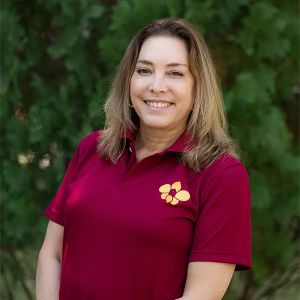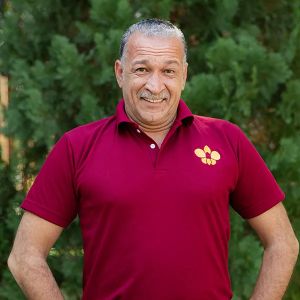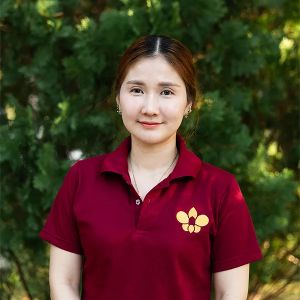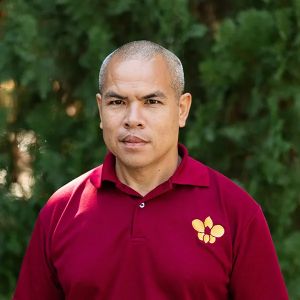








The Orchid Recovery Thailand
Verified Center
This provider's information has been quality-checked by Recovery.com's Research Team for accuracy and completeness, including center verification through appropriate third-party organizations.
Treatment Focus
This center treats substance use disorders and mental health conditions. You'll receive individualized care catered to your unique situation and diagnosis, learn practical skills for recovery, and make new connections in a restorative environment.
Primary Level of Care
Offering intensive care with 24/7 monitoring, residential treatment is typically 30 days and can cover multiple levels of care. Length can range from 14 to 90 days typically.
Treatment Focus
This center treats substance use disorders and mental health conditions. You'll receive individualized care catered to your unique situation and diagnosis, learn practical skills for recovery, and make new connections in a restorative environment.
Primary Level of Care
Offering intensive care with 24/7 monitoring, residential treatment is typically 30 days and can cover multiple levels of care. Length can range from 14 to 90 days typically.
Private Pay
You pay directly for treatment out of pocket. This approach can offer enhanced privacy and flexibility, without involving insurance. Exact costs vary based on program and length of stay. Contact the center for specific details.
The Orchid Recovery Thailand
The Orchid Recovery Thailand
About The Orchid Recovery Thailand
The Orchid Recovery provides personalised recovery programs for substance use, mental health issues like anxiety, depression, and trauma, as well as process addictions such as gambling. They offer detox and residential programs lasting 4, 8, or 12 weeks. By addressing the root causes of addiction and incorporating evidence-based and holistic therapies, The Orchid empowers clients to reclaim their lives in a supportive and serene environment in Thailand.
Access High-Quality Care Led by a Full-Time Psychiatrist
Under the leadership of The Orchid’s founder and full-time psychiatrist—a pioneer in addiction treatment who brings over 30 years of experience—clients receive a comprehensive blend of leading treatment methods. The Orchid uses evidence-based therapies like cognitive behavioural therapy (CBT) and dialectical behaviour therapy (DBT), and trauma therapy to help clients address the root causes of addiction and build healthy coping mechanisms. The team incorporates daily holistic practices like yoga, sound baths, meditation, and mindfulness so that clients can reconnect with themselves. Additionally, IV therapy is used to promote faster physical recovery and protect the brain and body from long-term damage.
Build Unity as a Couple or Family
The Orchid Recovery recognizes the vital role loved ones play in the recovery journey and offers family therapy, both in-person and online, during the latter stages of treatment. Their counselling services help repair strained relationships, fostering understanding and unity within the family system. Additionally, family members who participate in therapy can enjoy the relaxing surroundings of The Orchid during their visit, creating a supportive and rejuvenating experience for everyone involved.
Transition Smoothly Back to Daily Life
At The Orchid, recovery doesn’t stop when the client completes their residential rehab program. Their team provides two months of complimentary aftercare to help clients transition back to daily life. Through weekly Zoom sessions, clients focus on relapse prevention so that they can live a more fulfilling, substance-free lifestyle after treatment.
Relax with World-Class Amenities
Located in a former hotel, The Orchid provides an intimate environment for residential treatment. With a maximum capacity of 20 clients, this small community fosters connection and ensures each client feels seen. Every client stays in a private room and enjoys access to tranquil gardens, a pool, a fitness centre, and the serene beauty of the surrounding mountains. Clients are served 3 chef-prepared meals per day, with a focus on healthy nutrition as in the Mediterranean diet; vegetarian options are possible.
Highlights from the Center
Highlights
These highlights are provided by and paid for by the center.
Therapeutic Location
Customized Treatment Plans
Pool
Budget Friendly
Center Overview
Treatment Focus
This center treats substance use disorders and mental health conditions. You'll receive individualized care catered to your unique situation and diagnosis, learn practical skills for recovery, and make new connections in a restorative environment.

The Orchid Recovery Thailand
Pricing and Program Length
Estimated Center Costs
The cost listed here ($9,000+ / 28 days), is an estimate of program cost. Center price can vary based on program and length of stay. Contact the center for more information. Recovery.com strives for price transparency so you can make an informed decision.




Recovery.com Verified Listing
Recovery.com verified that the name, location, contact information and license to operate for this treatment provider are valid and up-to-date.

Licensed by Thailand
Recovery.com is an independent, third-party mental health resource. Verification does not imply endorsement and does not guarantee the quality of treatment services.
Meet Your Care Team

Dr. Suttipan Takkapaijit
CEO & Psychiatrist

Miss Anudsara Jirakarnwuthikrai
General Manager

Mr. Robert Siam Brown
Head of Client Relations

Miss Nichakamon Toamnad
Client Relations

Miss Panatda Saokaew
Client Relations

Miss Supattra Eiwgard
Client Relations

Mr. Eakaruck Rungreang
Client Relations

Mrs. Yuraima Josefina Cardozo Marcano
Psychologist

Mr. Ahmed Mohamed Salaheldin Abdelhameed Metwaly
Addiction Counselor

Miss Nalinee Nelapaijit
Holistic Manager

Mr. Thanachai Amatapreecha
Fitness Manager

Mr. Arnon Fackkeaw
Head Chef

Mrs. Manit Singkaew
Chef de patie

Miss Ketsarin Saenkhamlo
Restaurant staff

Mr. Bunjob Tuan
Head Nurse

Miss Nuntarikar Tanapaktanat
Nurse

Mr. Atigun Sommana
Nurse

Miss Junyaluck Wannakon
Nurse Assistant

Miss Thopat Thanawuthichaikul
Nurse Assistant

Mr. Prasit Worapun
Nurse Assistant
Your Care Options
Specializations
Alcohol
Using alcohol as a coping mechanism, or drinking excessively throughout the week, signals an alcohol use disorder.
Anxiety
Anxiety is a common mental health condition that can include excessive worry, panic attacks, physical tension, and increased blood pressure.
Detox
Detox fully and safely removes toxic substances from the body, allowing the next steps in treatment to begin with a clean slate.
Depression
Symptoms of depression may include fatigue, a sense of numbness, and loss of interest in activities. This condition can range from mild to severe.
Drug Addiction
Drug addiction is the excessive and repetitive use of substances, despite harmful consequences to a person's life, health, and relationships.
Sex Addiction
Compulsively seeking out sex can easily become a problem. This addiction is detrimental to relationships, physical health, and self-esteem.
Trauma
Some traumatic events are so disturbing that they cause long-term mental health problems. Those ongoing issues can also be referred to as "trauma."
Who We Treat
LGBTQ+
Addiction and mental illnesses in the LGBTQ+ community must be treated with an affirming, safe, and relevant approach, which many centers provide.
Men and Women
Men and women attend treatment for addiction in a co-ed setting, going to therapy groups together to share experiences, struggles, and successes.
Treatment Services
Detox
Detox fully and safely removes toxic substances from the body, allowing the next steps in treatment to begin with a clean slate.
Licensed Primary Mental Health
Some primary care providers offer mental health diagnosis and treatment. This can prevent patients from developing more serious conditions.
Residential
In a residential rehab program, patients live onsite, with access to daily treatment and 24-hour care. An average stay is 30-90 days.
Approaches
Evidence-Based
A combination of scientifically rooted therapies and treatments make up evidence-based care, defined by their measured and proven results.
Holistic
A non-medicinal, wellness-focused approach that aims to align the mind, body, and spirit for deep and lasting healing.
Individual Treatment
Individual care meets the needs of each patient, using personalized treatment to provide them the most relevant care and greatest chance of success.
Medical
Medical addiction treatment uses approved medications to manage withdrawals and cravings, and to treat contributing mental health conditions.
Therapies
1-on-1 Counseling
Patient and therapist meet 1-on-1 to work through difficult emotions and behavioral challenges in a personal, private setting.
Trauma-Specific Therapy
This form of talk therapy addresses any childhood trauma at the root of a patient's current diagnosis.
Couples Counseling
Partners work to improve their communication patterns, using advice from their therapist to better their relationship and make healthy changes.
Eye Movement Therapy (EMDR)
Lateral, guided eye movements help reduce the emotional reactions of retelling and reprocessing trauma, allowing intense feelings to dissipate.
Family Therapy
Family therapy addresses group dynamics within a family system, with a focus on improving communication and interrupting unhealthy relationship patterns.
Massage Therapy
Massage therapy relieves physical and emotional tension, reduces pain, promotes relaxation, and improves emotion regulation.
Recreation Therapy
In recreation therapy, recovery can be joyful. Patients practice social skills and work through emotional triggers by engaging in fun activities.
Sound Therapy
Sound therapy incorporates music, sound waves, and vibrations to promote emotional and spiritual healing.
Conditions We Treat
Pornography Addiction
A person with a porn addiction is emotionally dependent on pornography to the point that it interferes with their daily life and relationships.
Anxiety
Anxiety is a common mental health condition that can include excessive worry, panic attacks, physical tension, and increased blood pressure.
Bipolar
This mental health condition is characterized by extreme mood swings between depression, mania, and remission.
Burnout
Burnout entails mental and physical exhaustion, and leads to a severe lack of fulfillment. This condition is often caused by overwork.
Depression
Symptoms of depression may include fatigue, a sense of numbness, and loss of interest in activities. This condition can range from mild to severe.
Gambling
Excessive, repetitive gambling causes financial and interpersonal problems. This addiction can interfere with work, friendships, and familial relationships.
Gaming
Compulsive gaming is most often a problem for children and teens. The disorder can affect physical health, sleep, and the ability to focus at school.
Internet Addiction
Internet addiction is common among children teens. This compulsive disorder can damage relationships, school performance, sleep habits, and physical health.
Post Traumatic Stress Disorder
PTSD is a long-term mental health issue caused by a disturbing event or events. Symptoms include anxiety, dissociation, flashbacks, and intrusive thoughts.
Substances We Treat
Alcohol
Using alcohol as a coping mechanism, or drinking excessively throughout the week, signals an alcohol use disorder.
Benzodiazepines
Benzodiazepines are prescribed to treat anxiety and sleep issues. They are highly habit forming, and their abuse can cause mood changes and poor judgement.
Co-Occurring Disorders
A person with multiple mental health diagnoses, such as addiction and depression, has co-occurring disorders also called dual diagnosis.
Cocaine
Cocaine is a stimulant with euphoric effects. Agitation, muscle ticks, psychosis, and heart issues are common symptoms of cocaine abuse.
Drug Addiction
Drug addiction is the excessive and repetitive use of substances, despite harmful consequences to a person's life, health, and relationships.
Ecstasy
Ecstasy is a stimulant that causes intense euphoria and heightened awareness. Abuse of this drug can trigger depression, insomnia, and memory problems.
Heroin
Heroin is a highly addictive and illegal opioid. It can cause insomnia, collapsed veins, heart issues, and additional mental health issues.
Psychedelics
Hallucinogenic drugs—like LSD—cause euphoria and increased sensory experiences. When abused, they can lead to depression and psychosis.
Languages
Aftercare
Care Designed for Your Needs
Personal Amenities
Amenities
Special Considerations
Couples program
Using gentle clinical care, therapists guide patients and their partner through guided sessions to address issues and work towards lasting solutions.
Activities
Yoga
Yoga is both a physical and spiritual practice. It includes a flow of movement, breathing techniques, and meditation.
Off-Site Activities
Learn More About the Center
What Helps with Alcohol Cravings?
Learn about medications, behavioural interventions, and lifestyle changes that can make it easier to live without alcohol.
What Are The Benefits of Sober Living and Sobriety?
Discover the physical, mental, and emotional benefits of a substance-free lifestyle.
Trauma Therapy at The Orchid
Find out how trauma therapy can help a person take their future back from their past.
Family Therapy at The Orchid
Read about the healing made possible for clients and their loved ones.
What people are saying
Treatment
5.0
Accommodations
4.8
Food & Nutrition
5.0
Value
4.7
Pros
- Access to Nature (2)
- Addressed Trauma (2)
- Beautiful Location (2)
- Confidential (2)
G
Treatment in 2025 • (45 days) • Reviewed 03/04/25
Former Client
•Project Manager / Entrepreneur
•Belfast, Northern Ireland
Jill Louise
Treatment in 2025 • (45 days) • Reviewed 05/16/25
Former Client
•Teacher
•United Kingdom
D
Treatment in 2025 • (7 days) • Reviewed 06/05/25
Former Client
•Retired





